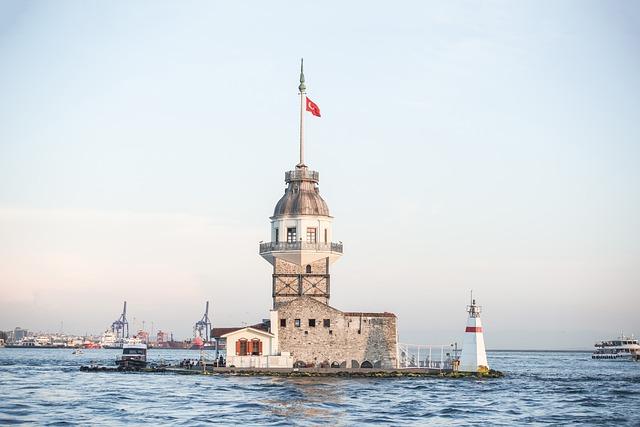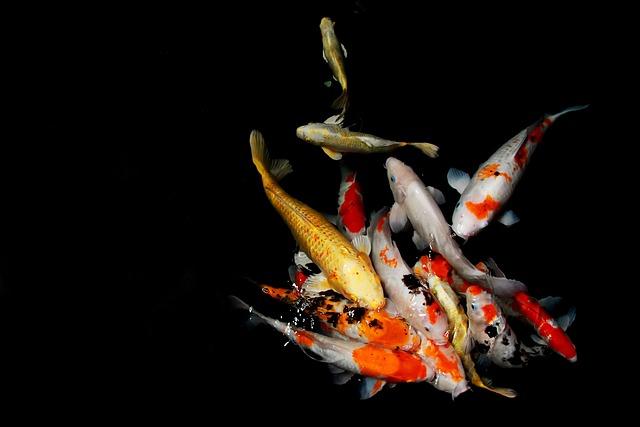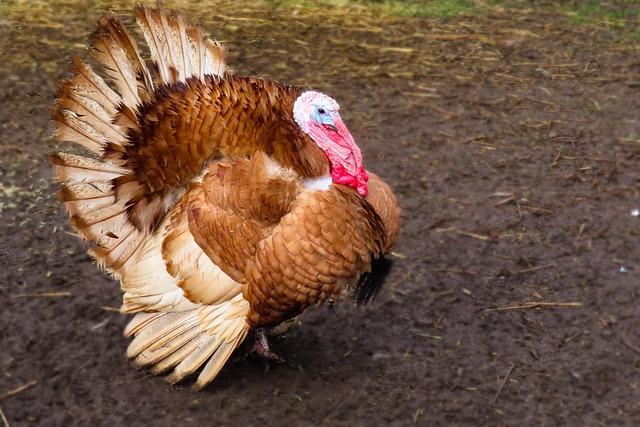In the intricate geopolitical landscape of Central Asia, Turkey is increasingly asserting its influence among the post-Soviet states, particularly through its cultural and ancient ties to Turkic nations. This strategic maneuver, often referred to as Turkey’s “Turkic Gambit,” seeks to leverage shared linguistic and cultural bonds to strengthen regional alliances and foster economic cooperation. As nations like Azerbaijan, Kazakhstan, and Uzbekistan navigate their own national identities in the shadow of larger powers, Turkey’s outreach serves as both a bridge and a balancing act amidst competing interests. This article explores the implications of Turkey’s gallant engagement with the Turkic world,analyzing the dynamics at play as it effectively works to cement its role as a key player in the political and economic realms of Central Asia. With historical connections at the forefront, Turkey’s approach could redefine the geopolitical contours of a region long shaped by external influences, presenting both opportunities and challenges for the nations involved.
Turkey’s Strategic Interest in Central Asia and the Turkic World

Turkey’s engagement with Central Asia and the Turkic world is underscored by a mix of cultural, economic, and geopolitical motivations. Rooted in a shared Turkic heritage, Turkey aims to strengthen ties with countries like kazakhstan, Uzbekistan, and Azerbaijan, fostering unity among Turkic nations.This strategic approach serves multiple purposes:
Economic Expansion: By investing in infrastructure and energy projects, Turkey enhances trade routes and economic interdependence.
Cultural Diplomacy: Promoting language and cultural programs reinforces a sense of belonging among turkic peoples.
Geopolitical Maneuvering: Acting as a counterbalance to Russian and Chinese influence in the region heightens Turkey’s regional stature.
The importance of Turkey’s role is further illustrated through collaborations in various sectors. As an example, Turkey’s active participation in organizations such as the Turkic Council facilitates ongoing dialog and cooperation.It also leverages its historical ties to advocate for regional stability:
Country
area of Cooperation
key Projects
Kazakhstan
Trade and Investment
Transportation Corridors
Uzbekistan
Cultural Exchange
Language Programs
Azerbaijan
Defense
Military Exercises
Understanding the Historical Ties between Turkey and Post-Soviet States

The historical ties between Turkey and the post-Soviet states are deeply rooted in shared ethnicities, cultural connections, and geopolitical interests. Nations such as Azerbaijan, Kazakhstan, and Uzbekistan not only share a Turkic heritage but also possess linguistic and cultural links that date back centuries. These connections have led to mutual cooperation in various spheres including trade, culture, and politics. Key aspects of this relationship include:
Cultural Exchange: the promotion of Turkic culture through educational programs and cultural festivals serves as a bridge between Turkey and the Central Asian states.
Economic Collaboration: Joint ventures in sectors like energy and infrastructure are vital, especially in strengthening supply chains between Turkey and its Central Asian partners.
Geopolitical Strategy: Turkey seeks to counterbalance Russian influence in the region, establishing itself as a key player in the strategic landscape of central Asia.
Furthermore, Turkey’s engagement with these nations is also reflected in its active participation in regional organizations such as the Turkic Council.This organization serves to enhance political dialogue,economic ties,and cultural cooperation among member states. The importance of these diplomatic relations cannot be overstated, as they signify a move towards a multipolar world where regional powers can cultivate their own spheres of influence. An overview of Turkey’s relations with selected post-Soviet states reveals the multifaceted approach it employs:
Country
Key Cooperation Areas
Historical Context
Azerbaijan
Energy, Military
Shared borders and Turkic roots
Kazakhstan
Trade, Culture
Historical Silk Road connections
Uzbekistan
Economy, Education
Common linguistic heritage
Assessing Turkey’s Economic Influence in Turkic Regions

Turkey’s economic engagement with Turkic regions reflects a multifaceted strategy aimed at fostering stronger ties while navigating the geopolitical complexities of post-Soviet landscapes. The Turkish government employs a mix of trade agreements, investment initiatives, and cultural exchanges to enhance its influence. Prominent spheres of economic interaction include:
Energy Cooperation: Joint ventures and energy projects, particularly in natural gas and oil, are pivotal in solidifying Turkey’s role as a regional energy hub.
Infrastructure Development: Turkish construction companies have undertaken critically important projects across Central Asia, enhancing connectivity and presenting Turkey as a leading partner in development.
trade Relations: Bilateral trade agreements promote goods and services, with an emphasis on fostering local industries and strengthening economic ties fostered by shared cultural heritage.
Moreover, the establishment of institutions like the Turkic Council is a strategic move to boost economic collaboration among member states. The council facilitates cooperation in various fields, encouraging a cohesive regional approach to challenges such as economic instability and resource management. The potential for greater economic integration is highlighted in the following table:
Country
Key Economic Sector
turkey’s Investment (Approx.)
Kazakhstan
Oil & Gas
$3 billion
Azerbaijan
Energy Infrastructure
$2 billion
Uzbekistan
Agriculture
$1.5 billion
These investments not only bolster Turkey’s economic clout but also underscore its commitment to security and stability in the region. As Turkey continues to navigate the delicate balance of influence among these nations, its long-term strategy appears increasingly focused on fostering interdependence, thereby mitigating potential challenges arising from external pressures and rivalries. The outcome of this engagement will significantly shape the socio-economic landscape of the Turkic world, laying the groundwork for a more integrated and cooperative future.
The Role of Cultural Diplomacy in Strengthening Turkey’s Position

Cultural diplomacy plays a pivotal role in reinforcing Turkey’s influence within the realm of post-Soviet states, serving as a bridge to foster deeper connections and mutual understanding. Through initiatives aimed at promoting Turkish language, arts, and traditions, Turkey not only cultivates goodwill but also establishes a framework for collaboration. Key strategies include:
Promotion of Language and Education: scholarships and language programs attract students from Turkic states, ensuring a new generation familiar with Turkey’s cultural and social landscapes.
art and heritage Exchange: Cultural festivals, artist residencies, and exhibitions allow for tangible expressions of shared heritage, creating a sense of unity among Turkic nations.
Media Engagement: Turkish television shows and literature are disseminated in these regions, enriching cultural ties and promoting Turkish narratives.
Moreover, Turkey’s cultural diplomacy complements its economic and political endeavors, positioning the country as a regional leader. By facilitating cross-cultural dialogues and partnerships, Turkey helps to stabilize relationships while promoting joint ventures in various sectors. Noteworthy impacts include:
Impact Area
Description
Education
Growing number of international students from Turkic countries studying in Turkey.
Tourism
Increased visitor exchanges fueled by cultural events and shared history.
Business
Cultural ties paving the way for cooperative economic ventures and investments.
Challenges to Turkey’s Influence: Geopolitical Dynamics and Rivalries

Turkey’s pursuit of influence in the countries of the former Soviet Union has become increasingly complex, marked by a landscape of shifting alliances and regional rivalries. As Ankara seeks to engage with Turkic nations like Azerbaijan, Kazakhstan, and Uzbekistan, it faces numerous obstacles that can dilute its efforts. Key among these are the historical ties reshaping political relations, the growing presence of other influential powers such as Russia and China, and the persistent ethnic and sectarian divisions within these states. These factors create a multifaceted habitat where Turkey must leverage its cultural diplomacy and economic partnerships while navigating the established interests of external actors.
Moreover, the rise of nationalism within various post-Soviet states presents another layer of challenge. Many nations are prioritizing their national identities over regional affiliations, making it challenging for Turkey to assert its influence. In this volatile geopolitical landscape, Turkey’s strategies must also contend with:
Russian Assertiveness: Moscow’s historical leverage in Central Asia poses a continual challenge to Turkish outreach efforts.
Chinese Investments: The Belt and Road Initiative enhances China’s economic dominance, complicating Turkey’s competitive stance.
Competitive Nationalism: Emerging nationalist sentiments can undermine any initiatives aimed at fostering Turkic unity.
Recommendations for Turkey’s Future Engagement with Turkic Nations

To enhance its leadership role among Turkic nations, Turkey must pursue a multi-faceted approach that combines diplomacy, economic collaboration, and cultural exchanges. Strengthening bilateral ties with each Turkic state can facilitate deeper integration, while promoting regional multilateral forums will enhance collective bargaining power on the international stage. Developing a robust framework for cooperation in sectors such as trade, technology, and defense will be essential, particularly by leveraging existing economic agreements to create more comprehensive platforms for collaboration.
Moreover, Turkey should prioritize cultural diplomacy to create a shared identity among Turkic peoples, fostering greater unity and understanding. This can be achieved through initiatives such as:
Exchange programs for students and scholars
Cultural festivals showcasing Turkic heritage
Joint media projects to promote Turkic languages and histories
Turkey’s commitment to these initiatives will not only strengthen its influence but also contribute to the stability and prosperity of the Turkic world as a whole. A table summarizing potential areas for cooperation can further clarify strategic priorities:
Area of Cooperation
Potential Projects
Economic Development
Joint trade missions, investment partnerships
Cultural Exchange
Language education programs, art collaborations
Security
Defense training exchanges, cybersecurity cooperation
Key Takeaways
Turkey’s strategic engagement with post-Soviet Turkic states reflects a complex balancing act aimed at enhancing its influence while navigating the intricate geopolitical landscape of Central Asia. As ankara endeavors to forge closer ties through cultural diplomacy, economic cooperation, and security partnerships, it faces both opportunities and challenges. The delicate interplay of historical connections, regional aspirations, and external pressures will undoubtedly shape the trajectory of Turkey’s Turkic gambit in the coming years. With the evolving dynamics of international relations, observers should closely monitor how Turkey positions itself amidst the aspirations of its Turkic neighbors and the broader geopolitical stakes at play. The outcome of this engagement could significantly impact the regional architecture of Central asia and redefine Turkey’s role on the global stage.
Author : Asia-News
Publish date : 2025-03-25 08:30:00
Copyright for syndicated content belongs to the linked Source.